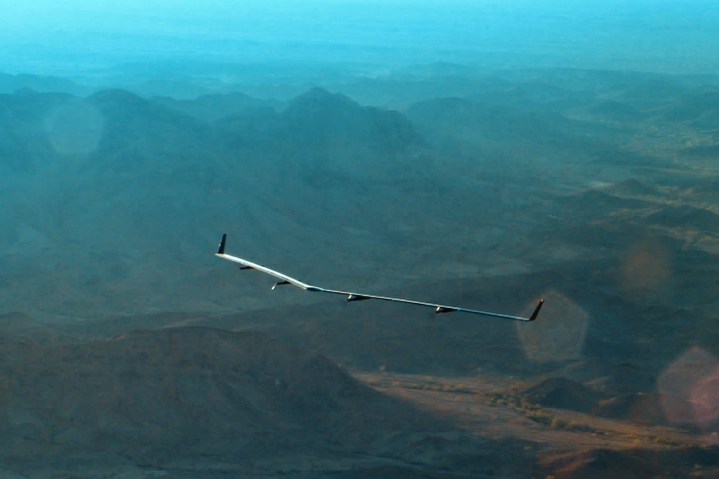
The incident was previously described as a “structural failure” by Facebook and occurred during the “Aquila” drone’s first test flight on June 28. Alongside the recent loss of Facebook’s Amos-6 satellite in a SpaceX rocket explosion, the investigation marks another setback to the company’s global connectivity plans.
The massive Aquila drone, which boasts a wingspan comparable to a commercial airliner’s, undertook “substantial” damage during the accident, a spokesperson for the NTSB told Bloomberg. No damage occurred on the ground, claims the agency. Facebook itself has not officially confirmed the investigation.
The revelation comes as Facebook CEO Mark Zuckerberg concludes his trip to the Asia-Pacific Economic Cooperation summit in Peru, where he has been speaking to world leaders about his company’s connectivity plans. “If we make the right investments now, we can connect billions of people in the next decade and lead the way for our generation to do great things,” said Zuckerberg in a
Last month, the company’s head of aeronautical platforms Martin Gomez revealed that a number of countries were interested in hosting test flights for the Aquila drone. The latest nation to express interest in Facebook’s Internet.org connectivity program is Indonesia, reports local newspaper the Jakarta Post.
Facebook previously claimed its inaugural test flight ended up lasting more than 90 minutes — almost three times longer than its expected duration. Despite being tested with a battery-powered system, Aquila drones are expected to eventually make the switch to solar.
The company said the following in a blog post in July: “Once they are fully operational, these high-altitude planes will stay airborne for up to 90 days at a time and beam broadband coverage to a 60-mile-wide area on the ground, helping to open the opportunities of the internet to people in underconnected regions.”
Editors' Recommendations
- Wing drone delivery heads to first U.S. metro area
- Sony’s first drone, the Airpeak S1, rockets to 55 mph in just 3.5 seconds
- Watch this incredible drone fly-through of Man City’s Etihad Stadium
- DJI FPV drone accelerates faster than a Tesla Model S. Yeah, it’s that quick
- Drones are being made out of pineapple leaves in Malaysia


